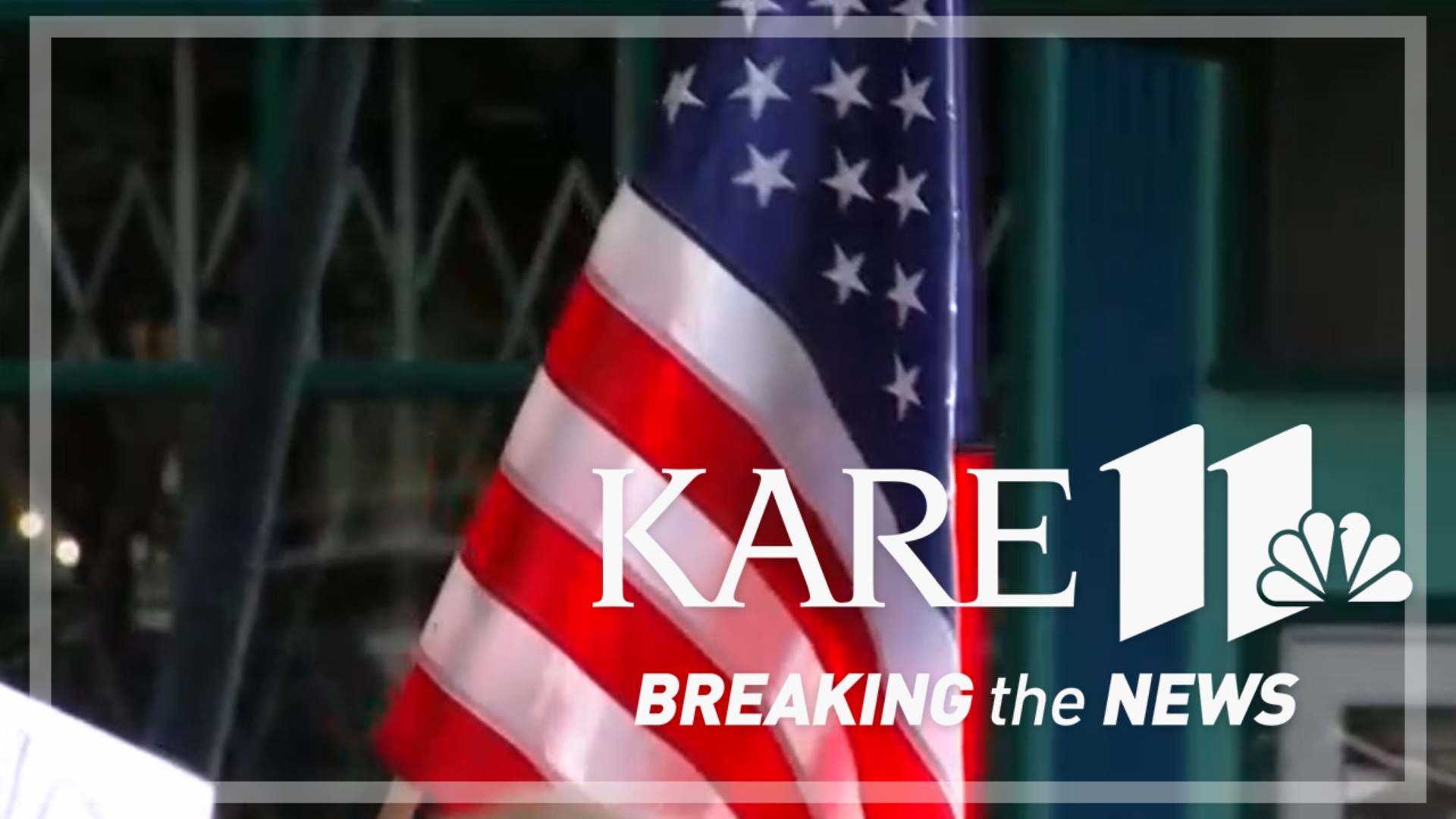MINNESOTA, USA — Over the weekend President-elect Donald Trump spoke on Meet the Press as he shared some insight into how his administration will approach the complex issue of immigration.
During the interview, Trump stated he would like to see ‘Dreamers’ stay in the United States.
‘Dreamers’ is a term that is often used to describe children who were brought into the U.S. by immigrant parents. For several years these children were protected by the Deferred Action for Childhood Arrivals (DACA) program.
During his recent interview on Meet the Press, Trump said many of those children have now grown into adults and he would like to see them stay in the United States.
“In many cases they have become successful, they have great jobs. In some cases, they have small businesses. In some cases, they might have large businesses and we're gonna have to do something with them," Trump said.
"And you want them to be able to stay. That's what you're saying?" Meet the Press host Kristen Welker asked.
"I do. I want to be able to work something out and it should have been able to be worked out over the last three or four years and it never got worked out,” Trump said during the interview.
That statement is a big departure from some of his other statements in that same interview where President-elect Trump also said he wants to deport mixed-immigration status families together and wants to end birthright citizenship.
Minnesota Recipient
Jesus Garcia Garcia is a DACA recipient who lives in Minnesota.
"My parents more than anything brought us here for a better future,” Garcia told KARE 11.
According to the American Immigration Council, Garcia is among more than 4,000 DACA recipients currently living in Minnesota. Garcia himself is a PhD candidate at the University of Minnesota.
He is studying brain tumors and how supercomputers can be used to better understand cancer on a cellular level.
"This work is to hopefully find a cure for them, for a lot of these patients,” Garcia said.
He is able to pursue his research thanks to his DACA status, but Garcia said many DACA recipients worry about the future of this program.
“I think we are all in danger, all of us, all immigrants, all people who are not originally born in this country,” Garcia said.
He said DACA recipients have different views when it comes to Trump taking office next year.
“His messaging, it is working. He’s shifting a lot of mindsets towards his side where well, Trump is helping us, Biden didn’t help us,” Garcia said.
However, Garcia’s views on Trump are different than some other DACA recipients, because he is worried Trump may be using DACA recipients as a bargaining chip to gain support so he can deport other groups of immigrants.
“I am not a token. I am not to be exchanged. I’m not a trade,” Garcia said. “We’re not only trading for a monument of a wall, and the meaning of separation, we’re also trading off our family members, we’re trading off our friends, we’re trading off many other families around the United States that come here to do good.”
Lawyer skeptical but hopeful
Julia Decker with the Immigrant Law Center of Minnesota is also skeptical of how Trump will view DACA recipients once he takes office.
"We have to operate in sort of a wait-and-see type mode,” Decker said.
She said immigration law is more complex than many people realize.
"I tell people the answers to most immigration questions are usually 'it's complicated' and 'it depends.'"
She said it's not as simple as saying this group stays and that group has to go. She said immigration is a spectrum and every case is unique. However, she is hopeful after hearing a more open-minded tone from the incoming president.
"I think it is always encouraging to hear, not sort of an entrenched position and a sort of willingness to look at alternative resolutions," Decker said. "I think we just have to be prepared for a whole variety of consequences and understand that people will be impacted, negatively, positively, in a lot of different ways."
Garcia is also preparing for the future. He's pursuing every option he has to get a 'green card' so he can continue working in the United States to find a cure for brain cancer.
"I'm thinking about, how am I going to help myself? What am I going to do differently so I don't have to depend on Trump, so I don't have to depend on any administration, Democrat, Republican, what am I going to do differently?” Garcia asked.
"I hope a lot of DACA individuals, a lot of other immigrants, families, take that approach," he said. "Show your worth. Show America that if you lose me that's really not a loss for me, it's a loss for you."

